What happens if you don’t get enough sunlight?
You already know the dangers of getting too much sun, but what you might not realize is that not getting enough could be bad for your health, too. Hopefully, you’ve been eating vitamin D-rich foods—or taking vitamin D supplements if you can’t get enough in your diet—but by the end of winter in the northern hemisphere, most of us crave a bit more sunshine. If you want to feel the sun shining on your body but worry about the damage it can cause, think again.
The Centers for Disease Control and Prevention (CDC) recognize there are both risks and benefits to spending time outdoors, and there are ways to do so safely. Research shows that there are benefits to getting enough sunlight—everything from keeping our bones healthy to decreasing our risk of dying from some cancers such as breast, ovarian, colon, pancreatic and prostate. The sun does a lot to keep us healthy—here are six signs you’re not getting enough sunlight.
This Nurturing Activity May Reduce Cancer Risk, New Study Finds
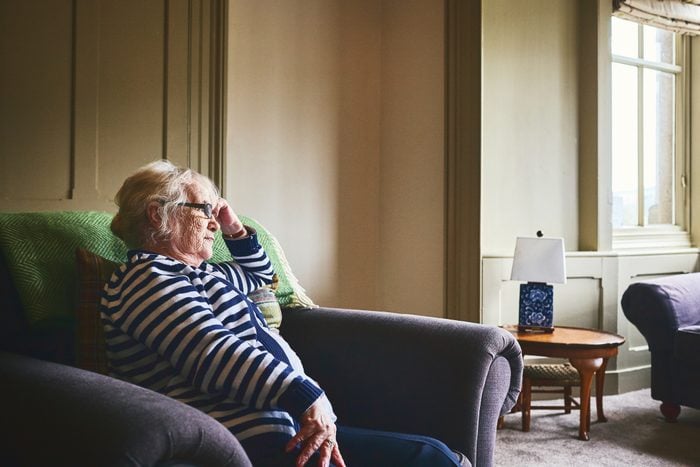
You’re feeling moody or depressed
Cooler temperatures can bring on gloomy moods. Whether you call it the winter blues, cabin fever, or seasonal affective disorder (SAD), doctors often chalk up cold-weather mood dips to a lack of sunshine. “Basically, it comes down to levels of the hormone serotonin in your brain,” explains Wesley Delbridge, RDN, a Phoenix area registered dietitian nutritionist. “With exposure to bright light, like sunlight, serotonin will increase.”
Translation? Catch a bit of sun, and your disposition could get sunnier, too. You can also try blue light therapy to boost your mood during the coldest, darkest months.
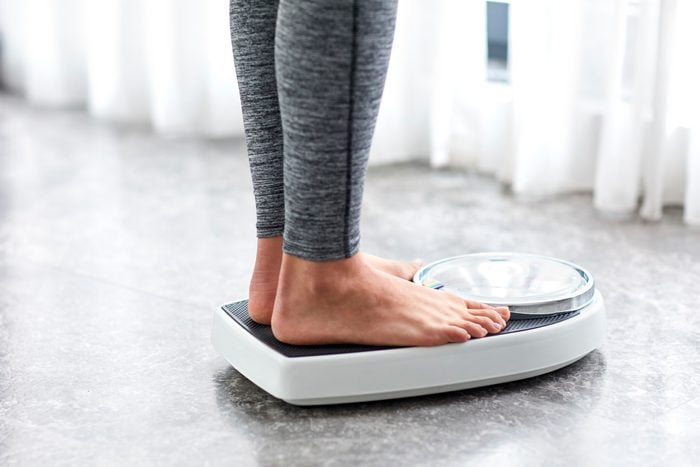
You’re gaining weight
Along with encouraging the skin to manufacture vitamin D, sunshine supplies the important nutrient nitric oxide, which keeps your metabolism running smoothly and discourages binge eating. “Vitamin D and nitric oxide levels mirror each other,” explains Lana Butner, ND, LAc, a board-certified naturopathic doctor and acupuncturist. “When one is high, the other is also within optimal range, and vice versa.” Nitric oxide is an active part of the lining of our blood vessels and is critical for good cardiovascular health.
“Vitamin D deficiency also causes mitochondrial dysfunction, which leads to a decrease in [energy] production,” explains Jenn McFarland, NP, Palm Health in St. Louis. “Low ATP production leads to muscular atrophy, and eventually muscle weakness.”
Research at the Mayo Clinic tells us that strength training is essential to overall health…so take those dumbbells or a resistance band out in the sunshine!
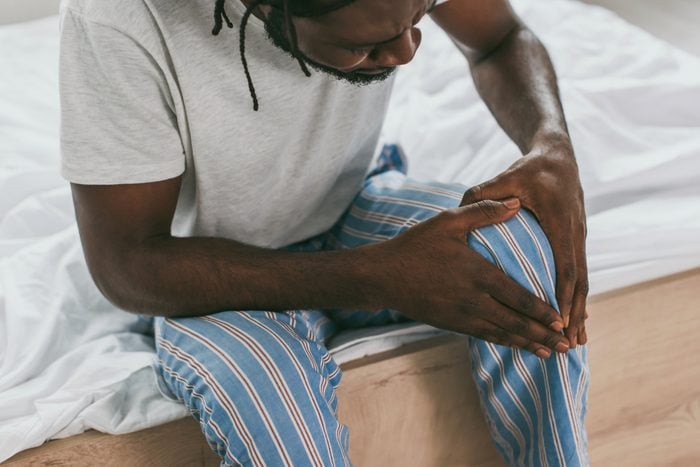
Your bones ache
Adults who don’t get enough sunshine, especially in the winter when it’s too cold to spend time outside, often feel aches and pains in their muscles and bones, or they might feel a bit stiffer in the morning. Delbridge says that what might be mistaken as arthritis or fibromyalgia (chronic muscle pain and fatigue) in adults could actually be a vitamin D deficiency due to a lack of sunlight.
Nutrients like calcium and collagen work together to build bones, but without a proper dose of vitamin D, the process is interrupted. “Your bones can actually ache and throb,” says Delbridge.
Speaking of bones, if you are deficient in vitamin D you run a risk of developing osteoporosis.
Read 4 Best Habits for Stronger Bones at Every Age and A Bone Health Doctor Just Listed the 12 Best Yoga Poses to Strengthen Bones
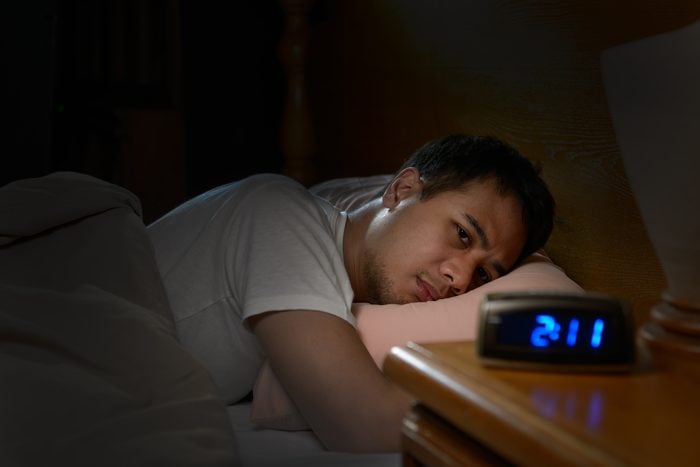
You’re exhausted not sleeping well
“Fatigue is a common side effect reported in patients with low Vitamin D levels,” McFarland says, and a lack of sunlight could wreak havoc on your body long after the sun goes down. It’s important to get outside every day, and if you skimp on the sun’s rays by staying indoors, you can throw off your circadian rhythm (your body’s internal clock), which could mean you’re not sleeping deeply enough, and may easily trigger insomnia.
I Took Magnesium to Help Me Sleep for a Month—Here’s What Happened
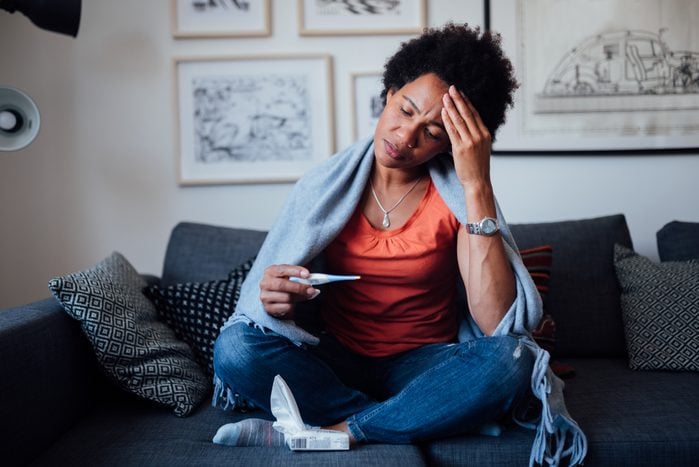
You keep getting sick
“Exposure to UVB light enhances spleen and immune function,” McFarland says, so if you keep getting sick you might not be getting enough sunlight and may be low on vitamin D. “When sunlight hits your eyes it activates your autonomic nervous system, which signals the release of immune cells,” McFarland says. “Having immune cells readily available to fight off viral and bacterial infections is what allows us to encounter pathogens without getting sick.”
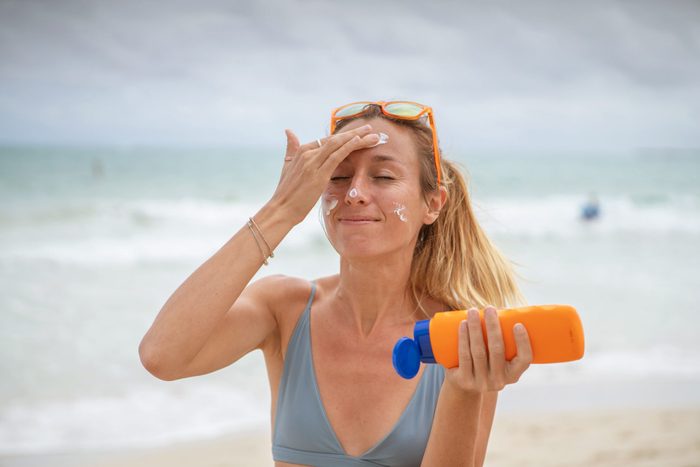
You always use sunscreen
Think more SPF is always better? In reality, the sun’s rays have many benefits, as long as you get exposure in moderation. If you’re trying to weight the risks and rewards of unprotected exposure, you can follow the advice of the Skin Care Foundation, an organization dedicated to the early detection and treatment of skin cancer. They recommend no more than 10 to 15 minutes of exposure to arms, legs, abdomen and back, two to three times a week. After that, the body can’t absorb any more vitamin D, so it’s best to cover up or apply sunscreen.
It doesn’t need to be hot or even sunny to reap the rewards of good old vitamin D. Even on a cloudy, chilly day, a small amount of exposure to UV rays can help you live longer and feel happier. “The point is, get out there and feel some light on your skin,” Delbridge says.
Additional writing and reporting by Jaime Stathis.